Helen Rimell has been grappling with the heartache of her mother Susan’s diagnosis of early-onset vascular dementia since 2015. Two years ago, Helen, a professional photographer, made the life-altering decision to leave her London existence and return to south Wales, assuming the role of her 75-year-old mother’s full-time caregiver.
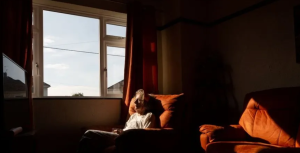
A seasoned photojournalist and wedding photographer, Helen had been capturing moments of her mother’s life for decades, a practice she continued even after the dementia diagnosis. This ongoing photographic journey evolved into a profoundly personal project titled “No Longer Her(e).”
Helen’s images meticulously document her mother’s decline, focusing on the nuanced details of everyday life at their home in Llantwit Major, Vale of Glamorgan. From a broken glass on the floor after Susan smashed it to a tooth-marked bar of soap revealing her loss of understanding of edibility, the photos paint an intimate picture of the challenges posed by dementia.
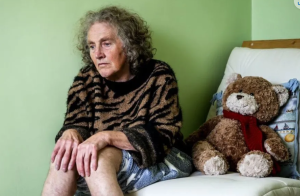
“I was trying to process the grief and the loss because she was becoming less and less herself all the time,” explained Helen. “She is here but she isn’t, and she is herself but she’s not.”
Recently, these poignant photographs earned a grant from the Bob and Diane Fund, an annual grant supporting visual storytellers sharing narratives about Alzheimer’s and dementia.
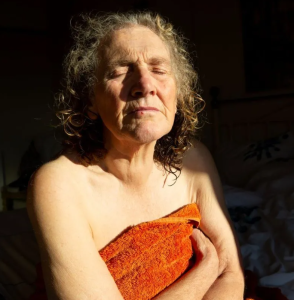
Helen’s deep connection with her mother has always been evident. “She was my best friend, I told her everything,” shared Helen, describing Susan as fun, funny, kind, caring, empathetic, and compassionate. “She was the only person that actually really understood me and had my back.”
Susan’s journey with dementia began in 2010 when she suffered a brain bleed. Initial signs included occasional forgetfulness, such as forgetting names and words. Following the formal dementia diagnosis in 2015, the progression seemed slow at first.
In 2018, Helen and her mother embarked on a cherished European trip, creating precious memories despite the challenges. However, when the COVID-19 pandemic struck in 2020, Helen spent more time away from her mother, observing the accelerated loss of her mother’s identity.
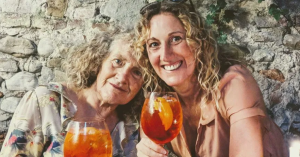
Helen decided to move back home in September 2021 to care for her mother directly. The experience has been mentally, emotionally, and physically taxing, with Susan losing the ability to engage in conversations, use cutlery, and struggling with incontinence.
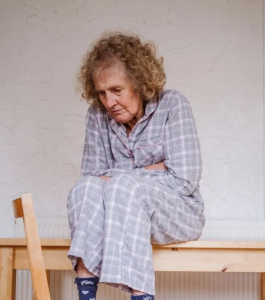
Despite the hardships, Helen finds solace in capturing small moments of happiness, such as her mother’s foot tapping to Elvis. The project, “No Longer Her(e),” aligns with their shared plan to document Susan’s disease and their relationship.
Read Also – Florida Resident Arrested for Alleged Threats Against Rep. Swalwell

